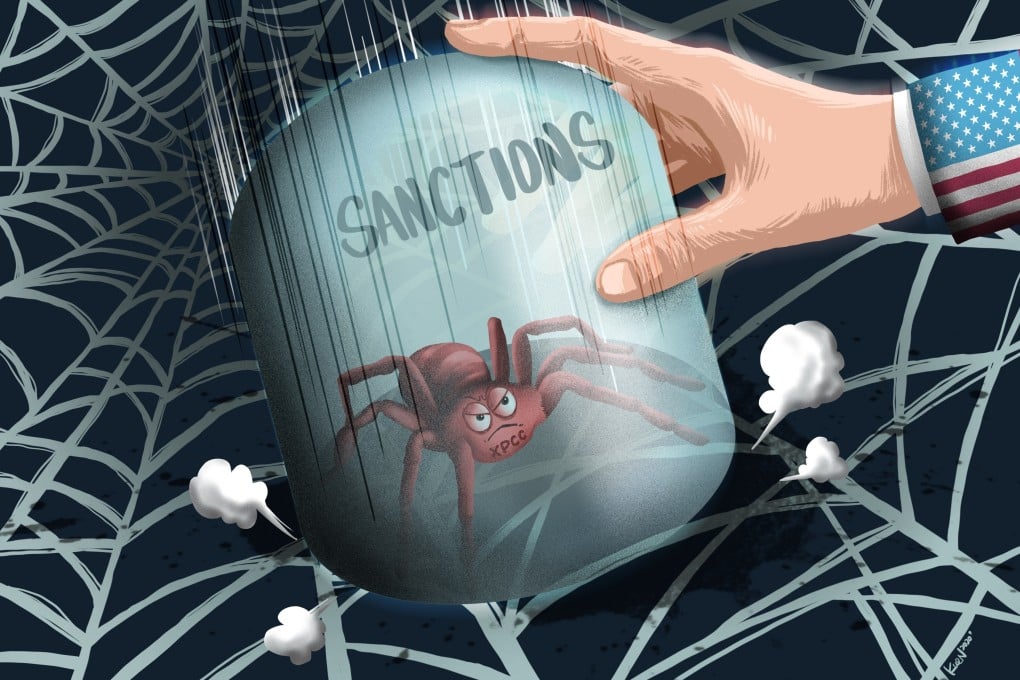Xinjiang’s sprawling conglomerate may be biggest ever to face US sanctions
- Three officials from the Xinjiang Production and Construction Corps have been put on a US sanctions list for links to alleged human rights abuses
- XPCC has stakes in more than 800,000 companies and groups in 140 countries

The US move against XPCC and its majority owned subsidiaries could be the biggest case in the history of the Office of Foreign Assets Control, the agency under the US treasury department that enforces financial sanctions, for the potential number of holdings affected. The sanctions have multiple implications for XPCC, from choking off bank loans to curbing its farm exports, such as cotton and tomatoes. They could also threaten its investments.
XPCC, which is involved in a myriad of industries, from construction and infrastructure to property and farming, has stakes in more than 800,000 companies and groups in 147 countries, according to US consultancy and commercial intelligence firm Sayari, which prepared a report on the conglomerate's structure.
The sanctions are linked to what China’s authorities call re-education camps for local Uygurs and other ethnic minority groups in Xinjiang, but what the US and United Nations have said are forced labour internment camps holding as many as 1 million people. Legal experts said enforcement of the sanctions would face challenges due to the sheer size of XPCC, dubbed a “state within a state” by China scholar Thomas Cliff at Australian National University.
That description seems to fit with how XPCC sees itself. According to a 2018 report by the privately held organisation, it reports its revenue as GDP, listing US$5.88 billion in net exports as part of its total GDP of 251.5 billion yuan (US$36.4 billion). It functions like a government in running schools, policing and health care facilities across a number of cities in Xinjiang for its employees and their families.